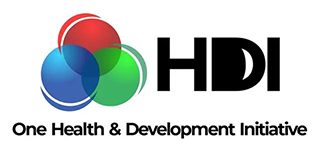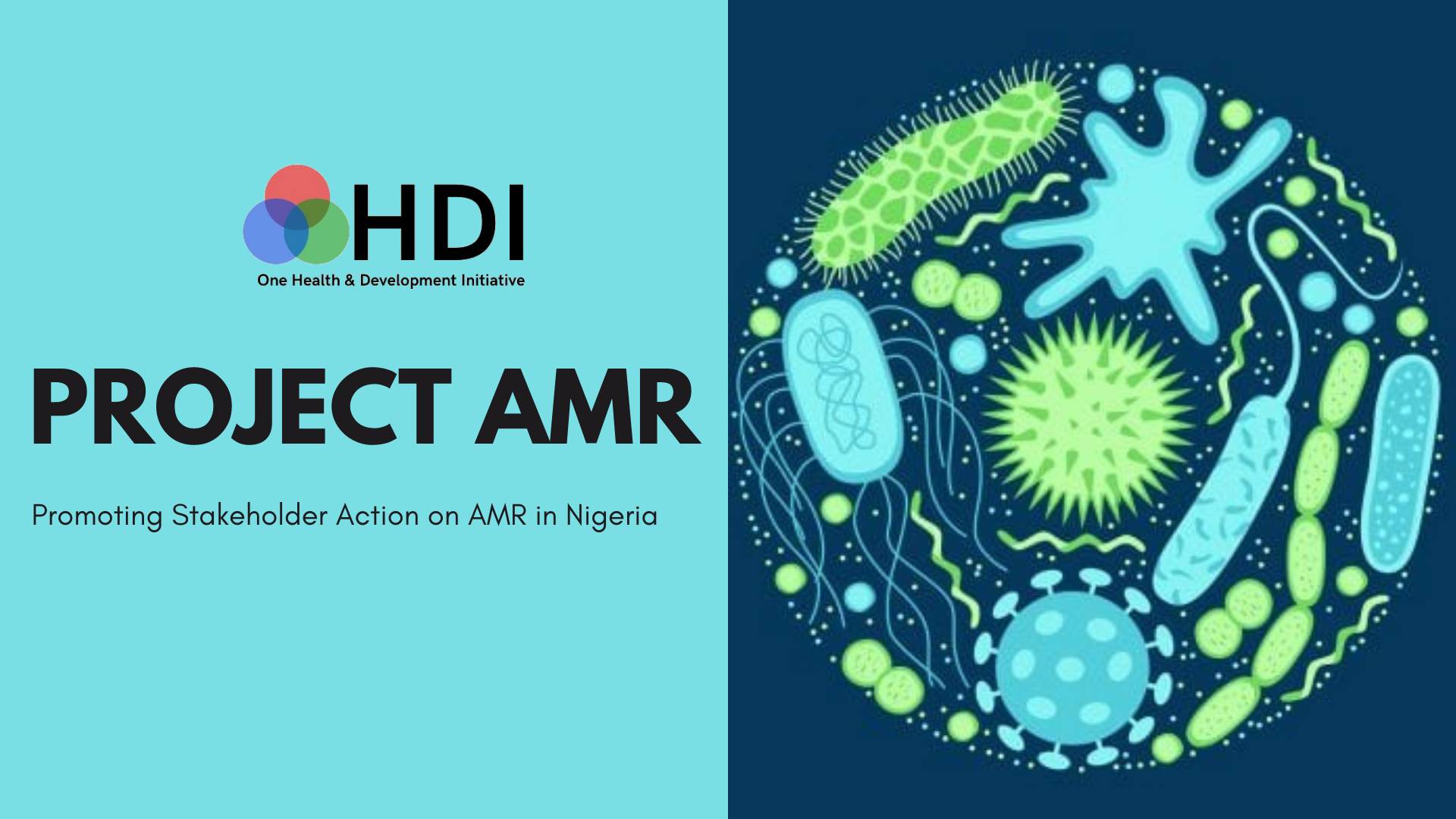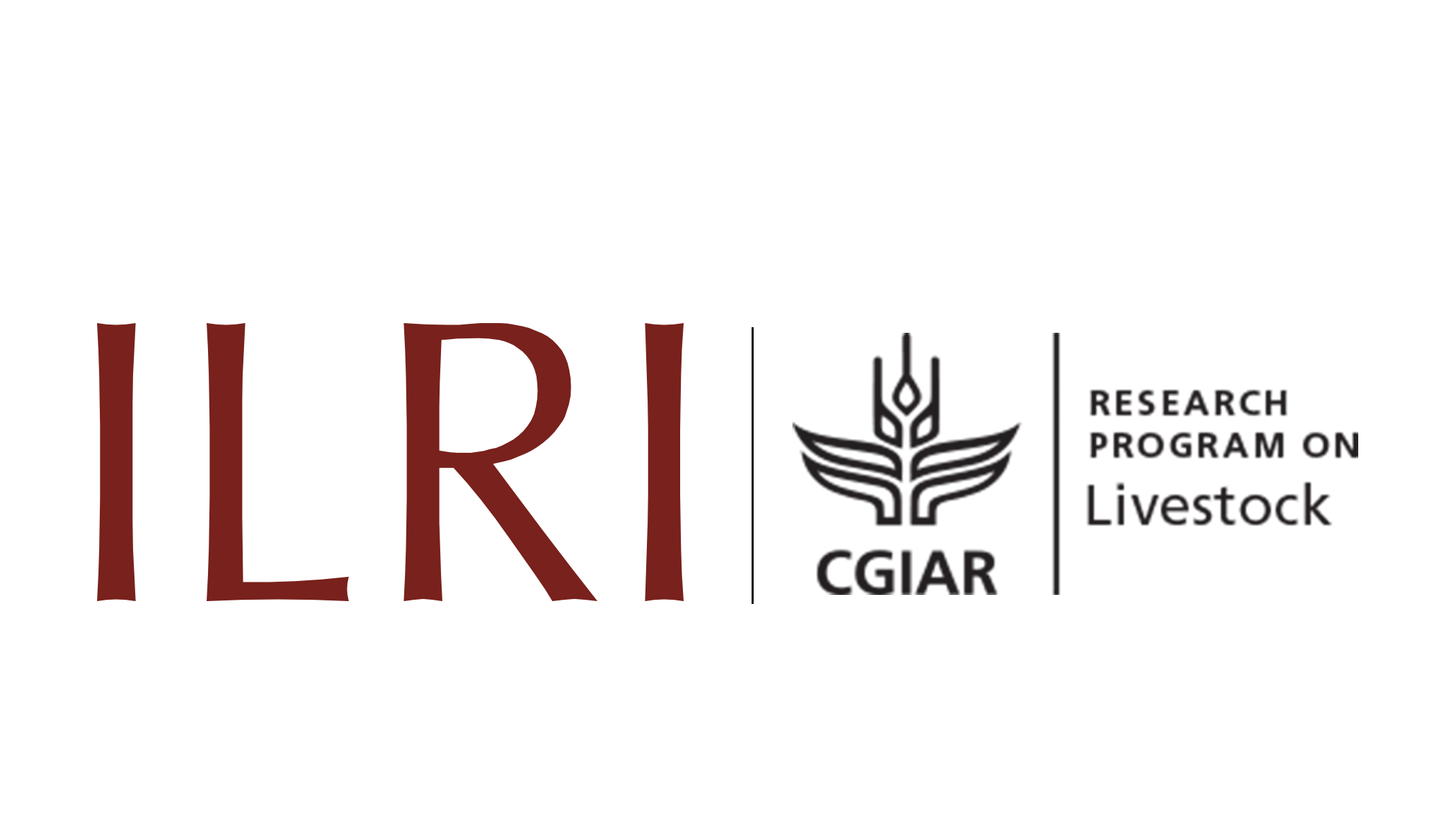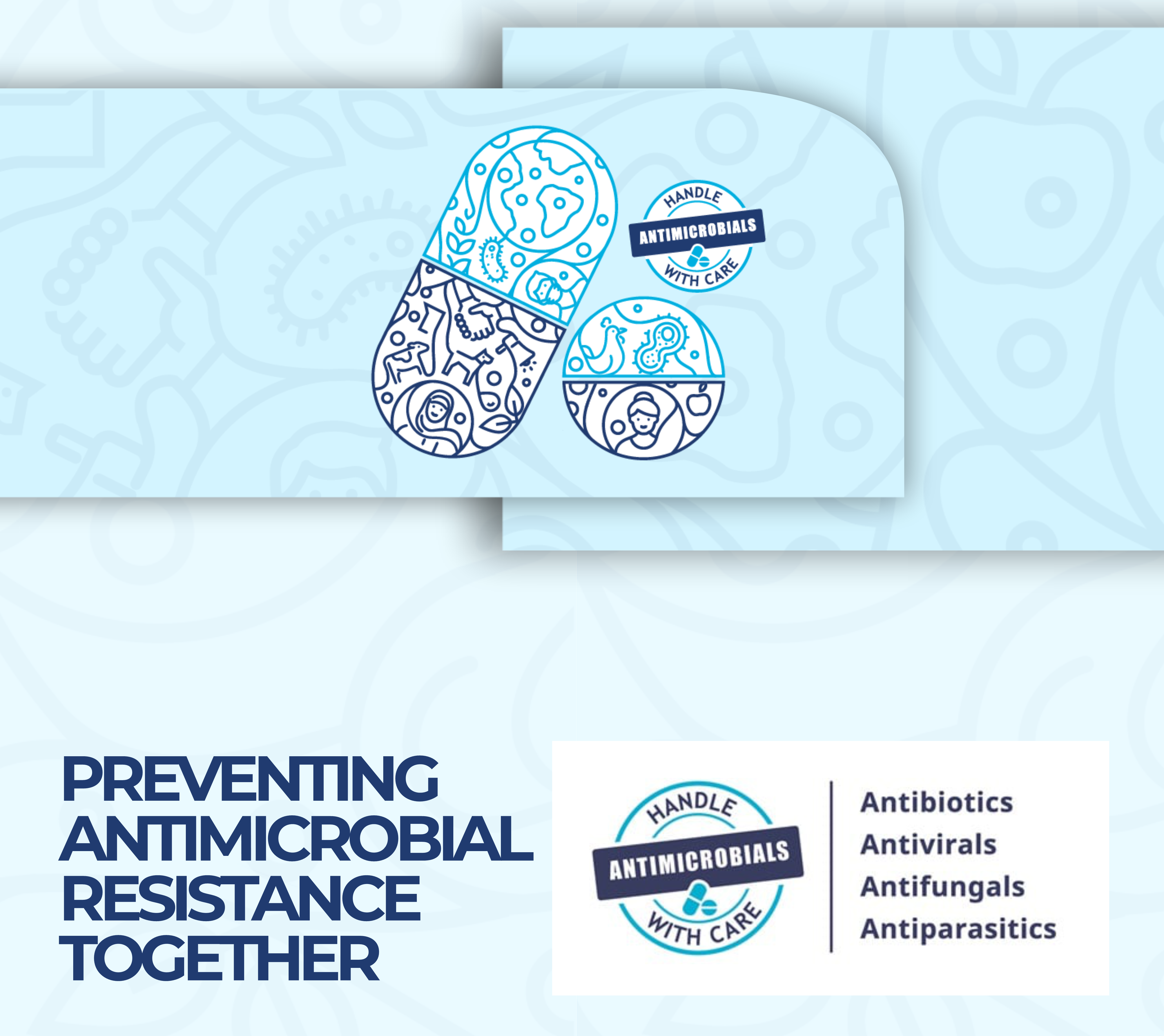Introduction to AMR
Antimicrobial Resistance (AMR) is a phenomenon that occurs when infectious pathogens including bacteria, viruses, fungi and parasites no longer respond predictably to antimicrobials over time leading to prolonged illness, increased risk of disease transmission, and potentially, death(1). This can occur with all classes of antimicrobials including antibiotics, antivirals, antifungals and anti-parasitics; such pan-resistant pathogens are often referred to as “superbugs”. Antimicrobial resistant microbes exist naturally in the environment but anthropogenic AMR can be caused by indiscriminate use, misuse, under-use and/or over-use of antimicrobials. The resistant pathogens can be spread between humans, animals, plants, food and the environment(2) through bodily fluids as well as human, animal and plant wastes(3). It is also often common in places with poor Water, Sanitation, and Hygiene (WASH) systems and poor infection control. AMR is prevalent globally causing an estimated 700,000 deaths annually and experts warn that if current trends continue, the associated mortality may increase to approximately 10 million deaths annually by 2050.(4) (5) Common examples of AMR have been seen in the increasingly difficult and prolonged treatment of urinary tract infections, sepsis, sexually transmitted infections, some forms of diarrhoea, tuberculosis, antiretroviral (ARV) therapy and malaria. (1)
The AMR Situation in Nigeria
In Nigeria, though AMR is confirmed to be a public health issue of concern, there is inadequate data on its actual prevalence and epidemiology. However, discrete research and independent reports have suggested the emergence of AMR-resistant microbes such as methicillin-resistant Staphylococcus aureus in southwest Nigeria and the flouroquinolone-resistant Escherichia coli.(4) In the country, there are peculiar practices and enabling conditions that increase the risk of occurrence and spread of antibiotics, and which provide an indication of the enormity of AMR issues the country has. For example, people generally have unrestricted access to use antibiotics, even for animals and plants, and there is lack of enforcement of established policies that address this practice. There is little to no adherence to proper antimicrobial use and observance of antimicrobial withdrawal times in food animals and plants – leading to the formation of antimicrobial residues on these food items which are eventually ingested by humans, thereby increasing the incidence of AMR. In addition, many communities continue to remain with poor WASH systems in homes, abattoirs and livestock farms, most of which often dump effluent and fecal waste filled with antimicrobials and AMR-resistant microbes into both land and aquatic environment. Furthermore, it is noteworthy that there is poor public knowledge and understanding of antimicrobial resistance and/or proper use of antibiotics among Nigerians (4). Health professionals have little capacity and/or resources to promote AMR knowledge and anti-microbial stewardship, and there are still no existing surveillance systems for AMR(6) for either human, animal or crop health systems – all of which contribute to increasing the risk and spread of AMR.
Research Hypotheses
Due to the demonstrated multiple impacts of AMR on human, animals and the environment, the One Health approach has been touted to tackle the menace of AMR through multisectoral stakeholder action(1). At the global level, the WHO works closely with the FAO, OIE and UNEP in a ‘One Health’ approach to promote best practices that should reduce AMR and slow its spread. Stakeholders in Nigeria have also made efforts to combat AMR, though with existent gaps in implementation and results. A key part of those efforts is the establishment of the National Action Plan for AMR (2017 to 2022) with the One Health approach in mind. The plan was coordinated by the Nigerian Center for Disease Control (NCDC) in collaboration with the Federal Ministry of Health (FMOH), Federal Ministry of Agricultural Resources and Development (FMARD), the Federal Ministry Environment (FMOE) and other stakeholders. The plan establishes a system and breakdown of relevant activities to be implemented to combat AMR in the country, and seeks to engage stakeholders at all levels in its implementation and reach. However, since its establishment, there has been little public information or documentation on the dissemination of the plan to relevant One Health stakeholders in the private and public sector, and how the plan has fared in implementation. It is also unclear if there has been an increase in knowledge and action to combat AMR by stakeholders and professionals engaged in One-health related activities.
Research Goal and Objectives
Therefore, One Health and Development Initiative seeks to conduct a research that would evaluate stakeholder knowledge and impact of the National Action Plan on AMR, including their perceptions, action, and achievements to combat AMR in Nigeria. This research would be conducted with a One Health approach engaging relevant public and private sector stakeholders at community, service delivery and policy levels.
This research will provide evidenced-based information on the level of awareness and stakeholder action on the growing threat of AMR in Nigeria, evaluate knowledge and implementation of the National Action plan on AMR among stakeholders, and proffer key recommendations for One Health integration, effective programming and impact in combating AMR. In conducting this research, we expected the following outputs:
- all relevant AMR and One Health stakeholders and institutions at community, service delivery and policy levels will be engaged in the process
- a comprehensive report will be produced,
- results and key findings will be disseminated through a stakeholder briefing, public awareness and advocacy, and
- a call to action for stakeholders will be promoted.
Implementing this research will leverage on and highly complement the work and progress made to date on the existing AMR activities and/or reviews, and would improve knowledge and action to combat AMR by relevant One Health stakeholders. It would also ensure that program plans and activities to combating AMR in Nigeria continue to be relevant, effective and impactful.
We are happy to announce that our Research Survey on AMR is now live! Click here to fill the Survey






This is a great project, I must say. There is an urgent need for us to take actions on Antimicrobial Resistance.
I have a question to ask. Can students be part of this project? I’m a student and I have a penchant for antimicrobial resistance and I would love to be a part of this amazing project.
This is a great project, AMR is a topic of concern to us as health care workers. This project will go a long way in addressing some of the concern. Thank you.
AMR is a matter of urgent concern to me personally because I think that we the stakeholders in health are not only ignorant about its gravity, we are actually contributing actively to worsen the situation.
It’s obvious to me from experience that Ciprofloxacin resistance is almost ubiquitous across the country. How many other animicrobials have become or are on the verge of becoming useless? Several!
We must act now!
I am a Veterinarian and Epidemiologist having completed my MPH Dissertation on AMR, would like to participate actively on this project if given opportunity to add knowledge to science on AMR.
The current trend of AMR is becoming alarming and that calls for urgent attention, sensitization and awareness in the use of antibiotics in the public sector. Methicllin-resistant S. aureus is ubiquitos and the emergence of Vamcomycin-resistant Enterococcus is on the increase. Therefore this research on AMR is a welcome development that I will be glad to contribute my knowledge, skills, experience and expertise to profer solution to this menace.
I have Masters in Medical Microbiology with an extensive background knowledge in Bacteriology and Parmaceutical Microbiology, I would like to contribute my knowledge in this survey if given the previlege.
Thank you and best regards.
I am a microbiologist. I did love to participate in this great and awesome project of AMR because cutting down the unnecessary use of antimicrobials is one key responsibility we all, as scientists must continue to carry out with the sole goal of bringing back antimicrobials to its ground of effectiveness.
Precious, Ebosetale Oyamendan
Many thanks.